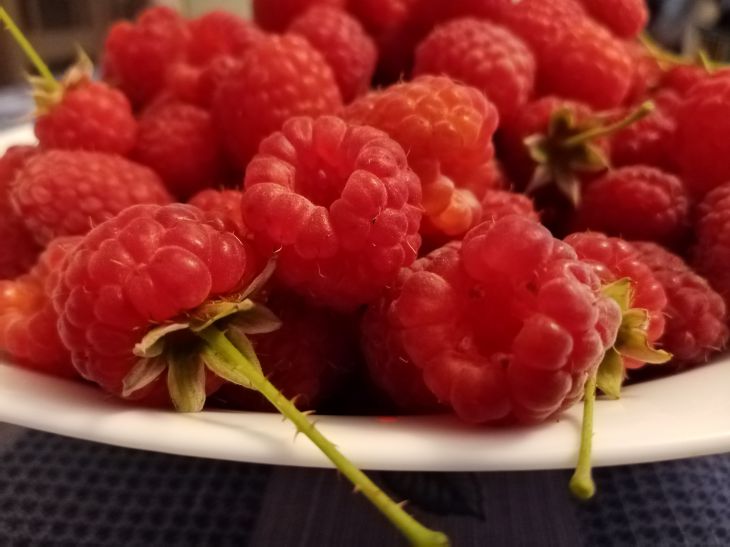What to Spray Raspberries with to Prevent Worms: Gardeners' Secret Weapon Against Uninvited Guests
Raspberries, a berry loved by many, often become victims of pests. It is especially annoying to find a small worm in a ripe berry.
Fighting them can turn into a quest for a gardener. But there are effective methods of protecting raspberries, allowing you to enjoy clean and tasty berries without hassle.
Understanding the Problem: Who Harms Raspberries?
Before you start fighting pests, it is important to understand who exactly you are fighting. Most often, the "worms" in raspberries are the larvae of the raspberry fly or the raspberry beetle.
These insects lay eggs in flowers or young ovaries, from which larvae then hatch, spoiling the berries from the inside.
Chemical means of protection
The fastest and most effective way to control pests is to use chemical insecticides.

Preparations such as "Aktara", "Confidor" or "Iskra" are capable of quickly destroying both adult insects and their larvae.
However, it is important to remember that the use of chemicals requires strict adherence to instructions and processing times to prevent harmful substances from entering the berries.
Biological methods of protection
For those who prefer more environmentally friendly methods, there are biological preparations.
Bacterial and fungal-based products, such as Fitoverm or Bitoxibacillin, effectively combat pests without harming the environment. These products are safe for humans and animals, which allows them to be used even shortly before harvesting.
Folk remedies for pest control
Many gardeners successfully use folk methods to protect raspberries. Infusions of wormwood, garlic or tobacco can repel pests.
Spraying the bushes with a solution of wood ash can also be effective. Although these methods require more frequent use, they are completely safe and available to everyone.
Preventive measures
Preventing worms from appearing in raspberries is much easier than dealing with an existing problem.
Regular cleaning of fallen leaves and berries, loosening the soil around the bushes help to destroy the wintering places of pests.
Timely pruning and thinning of bushes improves air circulation, which also has an adverse effect on the life of insects.
Selection of resistant varieties
Breeders are constantly working on developing raspberry varieties that are resistant to various pests.
Selecting such varieties for planting can significantly reduce the risk of berries being damaged by worms. Among the resistant varieties are "Gusar", "Patricia" and "Beauty of Russia".
An integrated approach to protection
The most effective approach to protecting raspberries from pests is a comprehensive one. Combining various methods – from preventive measures to the use of chemicals in extreme cases – allows you to achieve the best results.
It is important to remember that regular monitoring of the condition of plants helps to identify the problem in time and take the necessary measures.
Terms and frequency of processing
Regardless of the chosen method of protection, it is important to choose the right time and frequency of raspberry treatment.
The first spraying is usually carried out in the spring, before flowering. Then the treatment is repeated after flowering and, if necessary, during the period of berry formation. The exact timing depends on the climatic conditions and the selected preparation.
Safety during processing
When using any means for spraying raspberries, it is necessary to observe safety precautions. Work should be done in protective clothing, gloves and a respirator.
It is especially important to consider the wind direction when spraying the preparations. After treatment, it is necessary to thoroughly wash your hands and tools.
Earlier we told you that it is absolutely forbidden to plant near currants .
